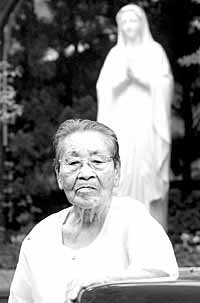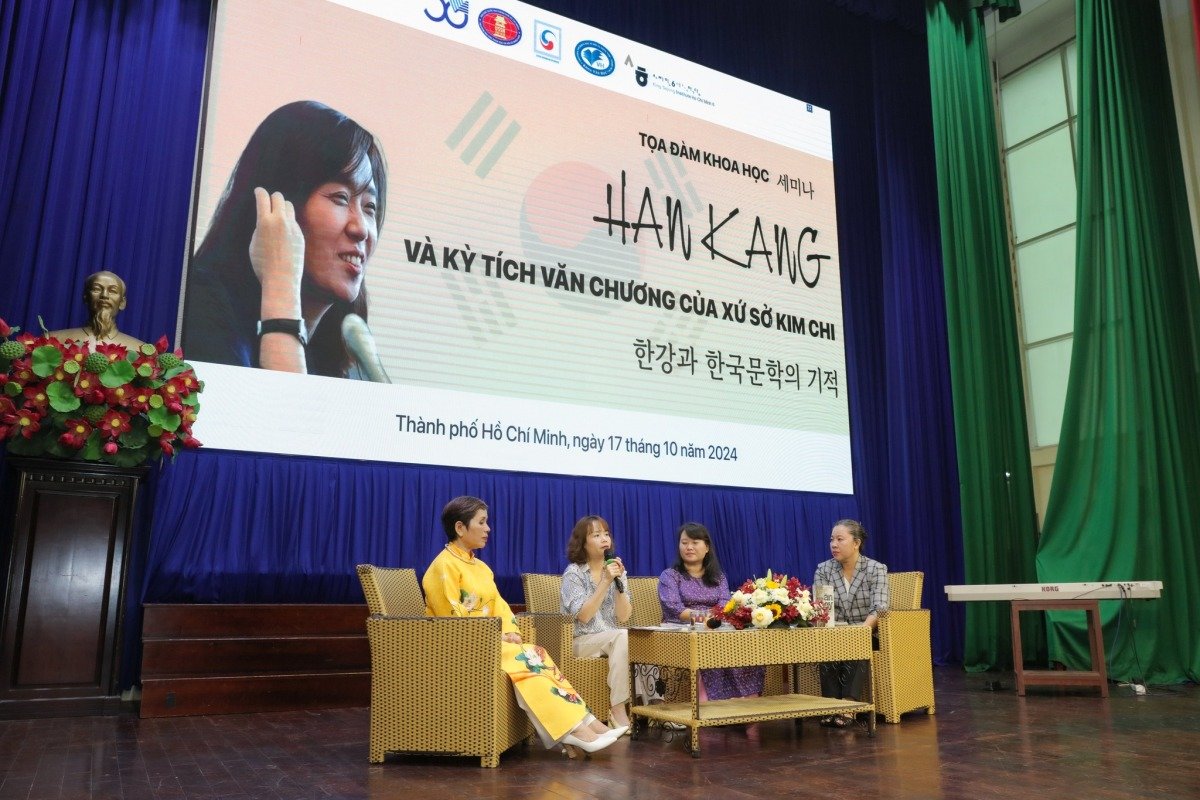Mother recovers honor of her late son

It is the responsibility of the government to locate a citizen who went out the war fields to defend his country and was missing in action and prove his identity as a person of merit. To defer the responsibility to the remaining families is an act of violation of the law.
The ruling was put forth by judge Lee Jae-Hong of the Seoul Administrative Court yesterday, who held up the hands of a 94-year-old mother Song Jung-Duk, who had fought to prove that her late eldest sons Lee Myong-Hoon died for his country while in action.
"I wanted to restore the honor of my son, who died at the age of 23," Song, who had been praying at a cathedral, said as she shed tears at the news of the ruling.
It was June 5, 1950 when her son Lee left to enter into as a cadet at the School for Army Infantry at Sihung, Kyonggi Province. The mother and son did not know nor could they know that a fratricidal war would break out 20 days later. The son, who had sent a letter that he would be home for holidays along with the clothes he wore the day he left home, never made it back.
In the first frantic weeks of the Korean War, the mother burned both the letter and the clothes, lest they would end up in the hands of the Communist North Korean soldiers and do harm to her son.
The war ended in 1953, but her nightmare began as her son did not return.
Since 1970s, Song wrote a letter on over three times petitioning to the Army headquarters to confirm whether her son was dead or missing in action.
Finally in February, 1999, she received an official notice that her son died in action.
A memorial tomb went up for her son at the National Cemetery, but the government refused to recognize her son as a man of merit; the reason, her son was in the military for too brief time and without proper papers to prove that he died while in action.
Song decided to take the matter into her hands and she filed a suit against the government last spring. Short of money to consult a lawyer, she was helped by her third son and her grandchild. Her fragile age had also debilitated her hearing and she could not clearly hear the judge`s words, but she rarely missed a day in court for the past year.
And the court did not turn a blind eye to the deep love of a mother, wanting nothing more than to restore the service and the name of her son who died for his country.
In the ruling, the court said that it goes against the sense of justice for the government to defer its responsibility of confirming the whereabouts of its soldier who died during a war. The court said that it made the ruling not only because it realized that Lee died while serving his country, but to ensure that all future soldiers who fight for their country can receive their due recognition.
Headline News
- Presidential Office signals possible offensive weapons aid to Ukraine
- N. Korea reportedly prepares military balloon attack with Russia
- Medical associations join bipartisan talks on expanding medical school quotas
- Former world No. 1 Ko Jin-young returns to LPGA
- Kakao unveils AI service ‘Kanana’ at 'if Kakao AI 2024'







